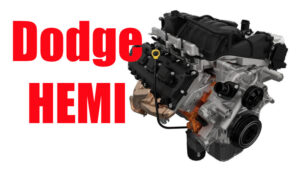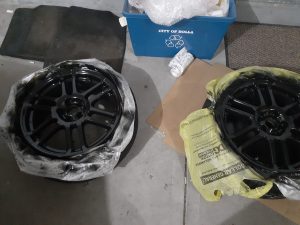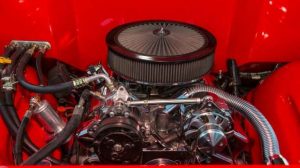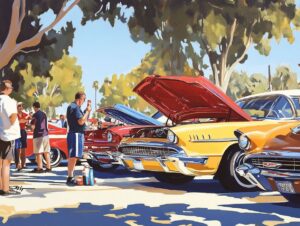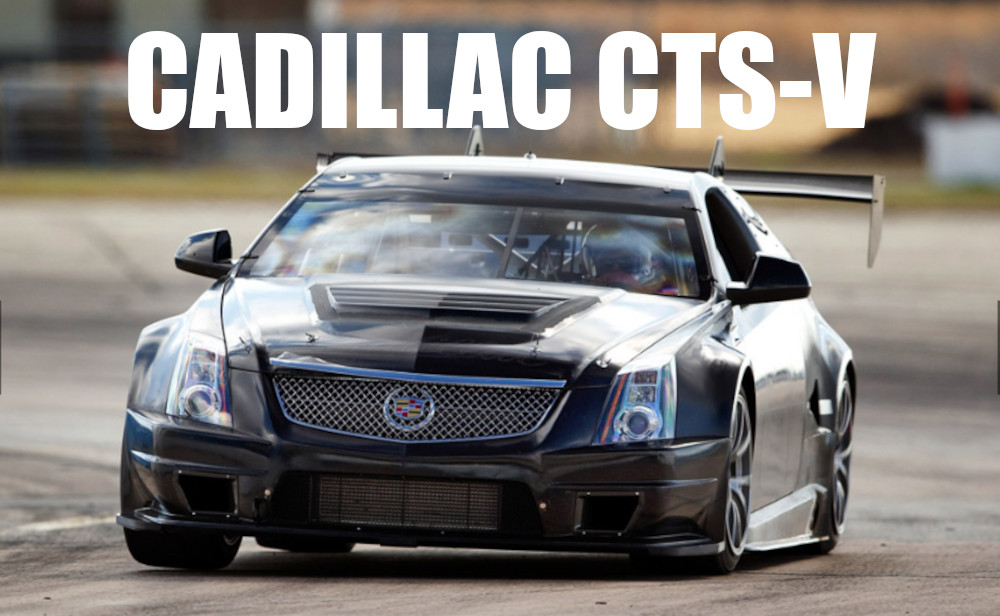
With the Cadillac CTS-V’s powerful LS2 6.0-liter V-8 engine and significant performance enhancements, this Caddy becomes a formidable track competition machine.
Short Summary:
- Launched as a strong response to the BMW M5 and Audi S4
- Equipped with a powerful 6.0-liter V-8 LS2 engine capable of reliable high horsepower
- Active performance aftermarket
- Excellent chassis
- Good value compared to modern competitors
The Cadillac CTS-V: A Powerful Contender
The Cadillac CTS-V continues to impress car enthusiasts and professionals alike. Launched initially in 2004 as General Motors’ answer to the BMW M5 and the Audi S4, it’s no surprise that the CTS-V garnered high praise for its combination of power and Cadillac luxury. The 2006 model took significant steps forward, incorporating the LS2 6.0-liter V-8 engine known for its superb low-end torque and overall performance.
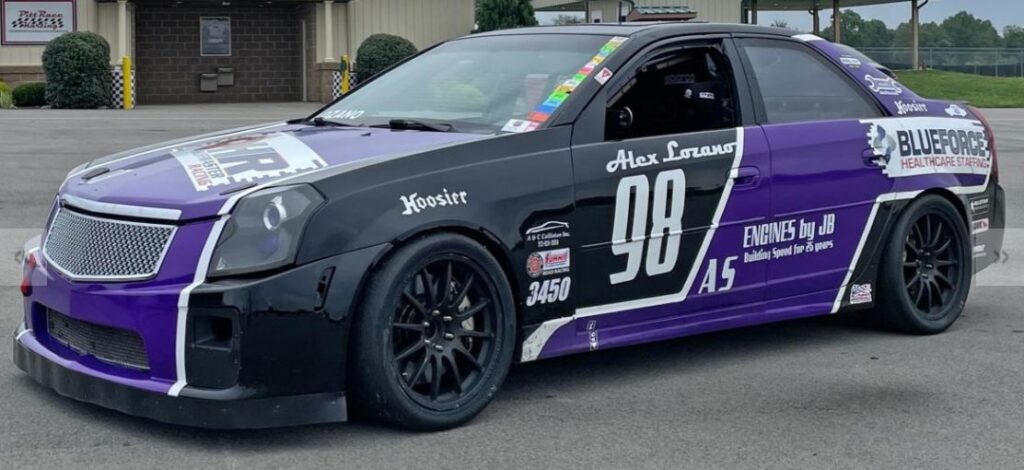
Image credit: https://grassrootsmotorsports.com/news/you-need-this-scca-american-sedan-ready-cadillac-cts-v
Engine and Performance
One of the primary selling points of the CTS-V for street performance and racing is its potent LS2 6.0-liter V-8 engine. Upgrading from the prior model’s LS6 5.7-liter V-8 from the C5 Corvette Z06, the 2006 version maintained the 400 horsepower output but offered peak torque at 4,400 rpm as opposed to the previous 4,800 rpm, enhancing its robust performance at lower revs.
“The small-block V-8’s superb low-end thrust provides delicious visceral urgency to corner exits, as well as a brassy baritone aural accompaniment.”— Tony Swan, Car and Driver, March 2004
In terms of acceleration, the pre-production model tested in 2004 struggled to hit General Motors’ claimed 0-60 mph times due to some wheel hop. However, improvements helped mitigate this issue in the subsequent models. Notably, the 2005 CTS-V logged an impressive 4.8-second 0-60 mph time when tested alongside the Mercedes-Benz C55 AMG and Audi S4, putting it in the upper echelon of performance sedans.
The LS2 motor can be modified to generate over 600 horsepower reliably, yet still drive smoothly on the track and street. A variety of packages are available off the shelf from tuners such as 21st Century Muscle Cars.
The CTS-V also comes equipped with a Tremec six-speed manual transmission that effectively channels the engine’s considerable power to the rear wheels. This robust six-speed manual gives perfect control over engine revs and downshifts to the driver. Downshifting into a slow corner or upshifting under hard acceleration is effortless and produces an awesome baritone exhaust sound. The stock transmission with cooler can handle upwards of 600 horsepower. If you’re going drag racing, however, you’ll want to beef up the entire transmission and differential package.
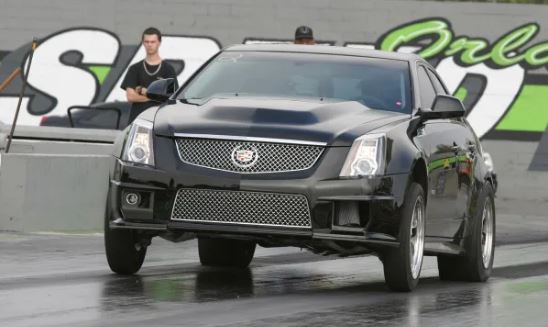
Image credit: https://gm-efi.com/cadillac-attack-2016-an-event-just-for-the-cts-v/
Value and Market Position
The first-generation CTS-V remains an attractive proposition for a street performance or racing car in terms of value. While you may find yourself paying in the $20,000 range for a well-maintained example, this is considerably lower compared to modern equivalents from Cadillac or its German rivals. Prices for second-generation CTS-Vs can range between $40,000 to $80,000. But the first-generation CTS-V is a budget-friendly starting point for a killer performance machine.
A quick glance at recent sales reflects this ongoing value:
- 2007 Cadillac CTS-V: $24,250 with 54,000 miles
- 2006 Cadillac CTS-V: $20,900 with 71,000 miles
- 2004 Cadillac CTS-V: $23,000 with 59,000 miles
These price points reveal that the CTS-V not only holds its value well but also offers a higher performance per dollar ratio than many competitors in the used car market.
Known Issues and Maintenance
Despite its significant strengths, potential buyers should be aware of some common issues associated with the first-gen CTS-V models.
The differential on the CTS-V can be a weak point, particularly in the 2004 and 2005 models that suffered heavily under the strain of the powerful V8 engine. General Motors did issue various recalls and provided the option to upgrade the differential at the owner’s expense — check if this upgrade was done to the car before buying one. For on-track use it’s a good idea to plan for a differential upgrade. At a minimum, the diff should be inspected and refreshed by a performance shop before you go out and punish it.
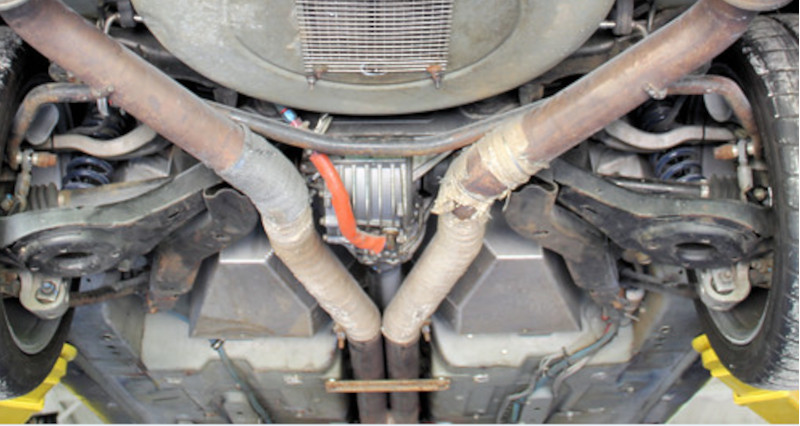
Oil consumption is another concern. Both the LS6 and LS2 engines are known to be somewhat thirsty for oil, with the LS6 having a valley cover prone to leaks. Given these issues, a thorough pre-purchase inspection is highly recommended. Prospective buyers should also consult the CTS-V forums where a large community of owners share solutions and advice for these common problems.
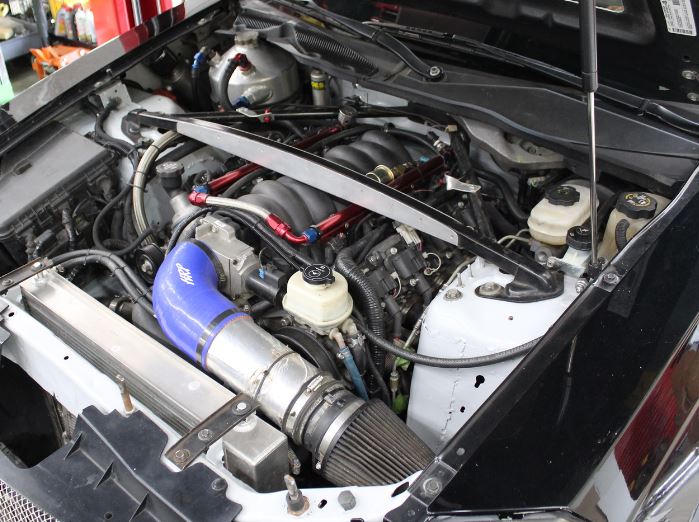
If you’re planning to have the motor rebuilt, then it’s important to go with a shop that’s familiar with the CTS-V motor and how it’s packaged in the Cadillac.
The clutch, cooling, motor mounts, oil pressure and the rigors of high-RPM operation under heavy load need to be addressed if you plan for more than the occasional track day or autocross.
Modifications and Community
The aftermarket scene for the CTS-V is robust, offering numerous options for those looking to enhance performance further. Whether it’s through suspension upgrades such as KW Variant 3 coils and Swift 16k springs, or engine modifications like a cold air intake or an LS3 head and cam upgrade, there is no shortage of ways to make a CTS-V faster.
“I added a cold air intake tube, catch can and tune by Patrick Guerra.”— From an owner’s modification log
Community forum engagement is also a strong point, with many owners chronicling their build projects and modifications online. These provide valuable insights and recommendations for your application. The camaraderie among the CTS-V performance community is strong.
Final Thoughts
Cadillac CTS-V represents a compelling option for anyone in the market for a high-performance sedan to build as a street fighter, track day car or full-on race car. With its potent LS2 6.0-liter engine, outstanding chassis dynamics, and competitive pricing, it’s a formidable competitor against many modern performance vehicles.
Potential buyers should, however, proceed with caution and make sure to address known issues related to the differential and oil consumption. With the strong backing of an active community and numerous aftermarket options available, the Cadillac CTS-V is a winner in the performance car landscape.
The AutoPros.online team is dedicated to bringing you high quality automotive content for professionals and car enthusiasts, with topics like auto detailing, performance modifiations, repairs and automotive news.
